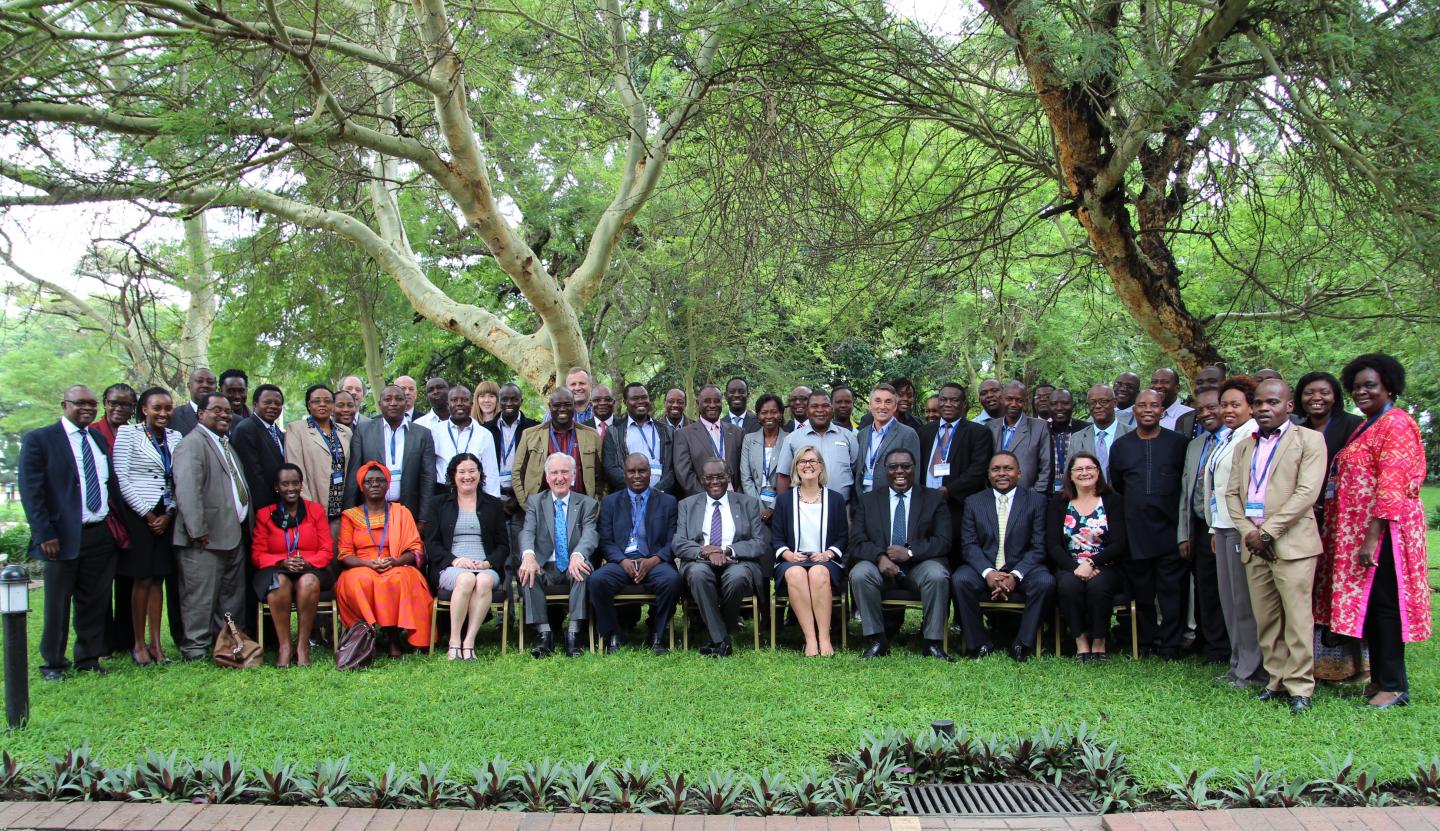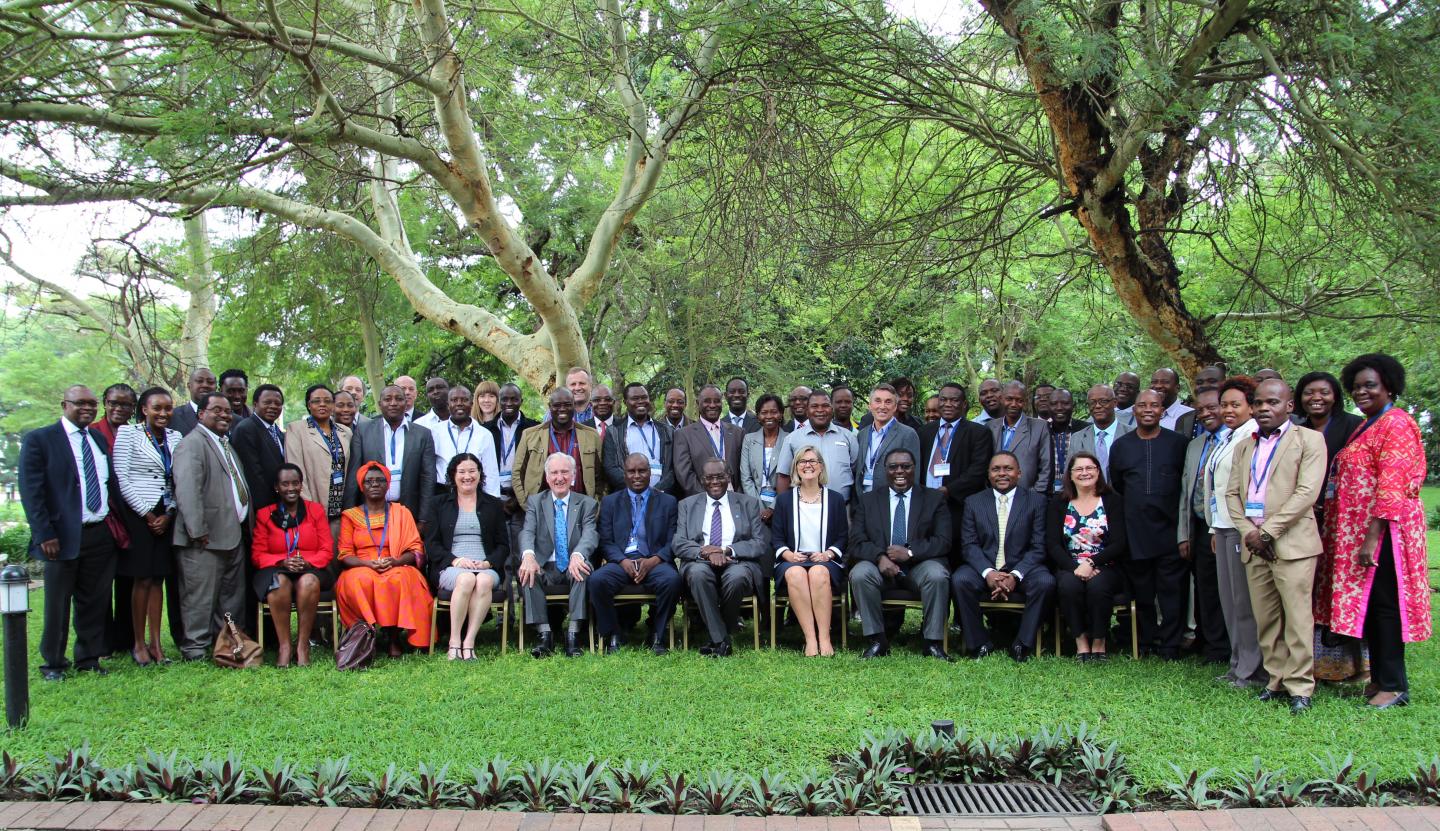
Credit: Plant Biosecurity CRC
5 April 2017 – The fourth Africa Plant Biosecurity Network workshop, held in Lusaka, Zambia from 27 February to 3 March, concluded with firm commitments from members, partners and regional agencies to ensure the Network has an enduring future.
"Plant biosecurity is key to improving food security and regional trade throughout Africa," said Thierry Mutombo Kalonji, Director of Industry and Agriculture with the Common Market for Eastern and Southern Africa (COMESA) trade group.
"COMESA is committed to supporting the Network into the future and ensuring it continues to grow. By building strong relationships between countries and boosting agricultural trade, the Network clearly aligns with COMESA's priorities and obligations and can make substantial contributions," he said.
The network includes 35 African biosecurity champions from Burundi, Ethiopia, Kenya, Malawi, Mozambique, Rwanda, Tanzania, Uganda, Zambia and Zimbabwe and is an initiative of the Australia-Africa Plant Biosecurity Partnership (AAPBP). The African biosecurity Fellows worked and trained with Australian professionals and researchers, and are passing on their skills and knowledge to colleagues in their organisations.
Senior Fellow Antónia Vaz Tombolane works in the Plant Protection Department of the Ministry of Agriculture, Mozambique.
"Through the AAPBP I learned techniques for identifying diseases threatening Mozambique such as Panama Tropical Race 4 (TR4) disease of bananas. We are applying these techniques to improve biosecurity measures for farmers and have equipped a laboratory and trained staff in TR4 diagnosis and to identify other plant diseases."
The Network's aim is to improve national and regional quarantine and plant protection capacity, thereby lifting crop yields, enabling safe regional trade, expanding international market access opportunities and securing greater food security for the region. Topics covered by the fourth workshop included design of plant pest surveillance, seed-borne diseases and the emergency response to the fall army worm, currently devastating crops in southern Africa.
The partnership approach to training has been very effective, enhancing individual capacity but also identifying common problems and approaches to biosecurity. The involvement of members from the private sector gives the Network a commercial perspective on trade and plant production systems. The private sector see value in and are keen to work with the Network to build partnerships with regional National Plant Protection Organisations (NPPOs).
While the initial two year program has ended the Network has a bright future, with Fellows recognising that the Network must be African-led with strong private sector involvement to be sustainable.
The Food and Agriculture Organization of the United Nations (FAO) was also represented at the week's workshop and believes the program is extremely important. FAO are already incorporating AAPBP Fellows into their programs and are keen to take the network further and utilise the significant plant biosecurity capacity that has been built.
The Australian Government, through the Australian Centre for International Agricultural Research (ACIAR), funded the initial AAPBP project and will continue support in the short term.
"ACIAR is pleased to be able to fund a Network Coordinator position for one year, to be hosted by COMESA," said Mellissa Wood, General Manager, Global Program, ACIAR.
AAPBP partner, the Crawford Fund, will also support the partnership through the appointment of a mentor to work alongside the Coordinator and provide ongoing mentoring services as needed.
CABI, which has offices in Lusaka and Nairobi, was instrumental in delivering the African Network meetings.
"The program is already boosting food security, through improvements in production, and we are starting to see progress towards opening of new markets for member countries," said Dr Dennis Rangi, CABI's Director General of Development.
"These early successes suggest that expanding the Network to include other countries in the region could make a real difference to African lives," he said.
The lead agency for delivering the initial program, the Plant Biosecurity CRC, is delighted with the success of the program.
"By putting Australian researchers and biosecurity professionals in contact with their African counterparts, we have seen the Fellows develop new skills and confidence but also form many lifetime friendships," said PBCRC Research Director Dr Jo Luck.
"We are very pleased that this good work will continue, with growing benefits for food security, regional trade in Africa and for other nations, including Australia."
The Australia-Africa Plant Biosecurity Partnership has been led by Australia's Plant Biosecurity CRC and funded by ACIAR and CABI. The program is being delivered by a consortium of the Plant Biosecurity CRC, ACIAR, CABI and the Crawford Fund.
###
More information is available at http://www.pbcrc.com.au/research/east-africa/news
Media Contact
Tony Steeper
[email protected]
61-041-769-7470
@PBCRC
http://pbcrc.com.au/home
############
Story Source: Materials provided by Scienmag





